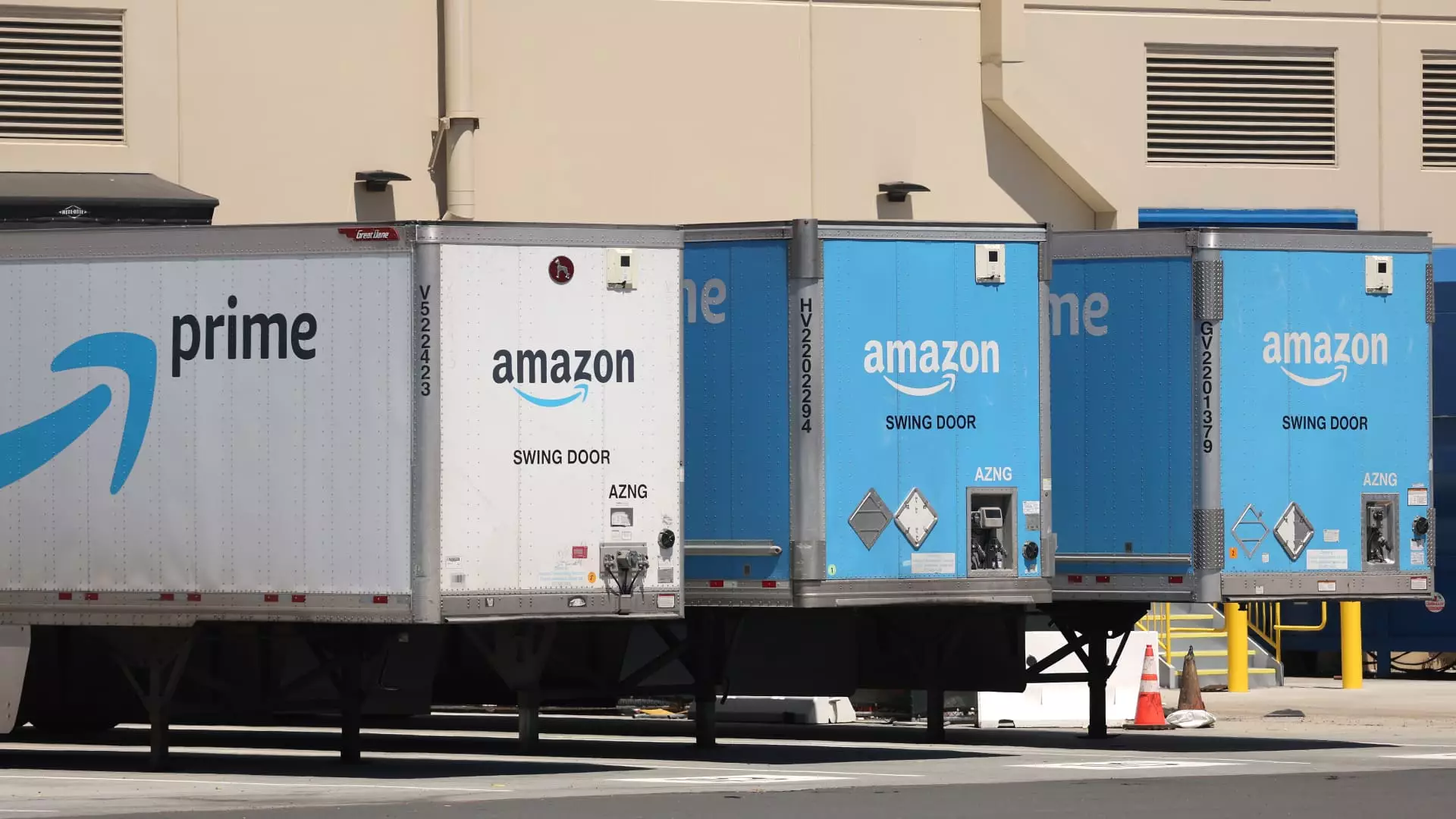The recent indictment of members of an Armenian organized crime ring for allegedly stealing over $83 million worth of goods from Amazon illustrates a troubling trend that is eroding the integrity of modern commerce. Organized crime’s infiltration into e-commerce systems has become a glaring phenomenon, raising questions not only about the efficacy of existing regulatory frameworks but also about the ethical responsibilities of major market players. With more than $1 billion lost annually to cargo theft, it is painfully evident that the fight against such illicit activities must be escalated.
The Department of Justice charged these individuals with a meticulously planned operation that went beyond mere opportunism; they cleverly posed as legitimate truck drivers. This revelation does not just point to individual malfeasance but speaks volumes about a systemic vulnerability within the e-commerce logistic networks, especially at a company as prominent as Amazon. The alleged modus operandi — diverting designated routes to pilfer goods ranging from essential electronic items to household appliances — is a brazen affront to the laws that govern fair trade and consumer protection.
A Call for Robust Corporate Governance
Amazon’s efforts to combat cargo theft are commendable, yet the recurring nature of such incidents signals a need for a more formidable approach. The company has reportedly enhanced its strategies to eliminate fraudulent activities on its platform; however, such measures eventually become reactive. The challenge lies in adopting a proactive stance that protects not only the corporation but also its legitimate third-party merchants, who risk their livelihoods in the turbulent waters of the marketplace.
It is woefully simplistic to view this as a mere battle between criminals and a corporation. A deeper examination reveals that smaller vendors often find themselves ensnared in the fallout of these criminal enterprises. Many sellers lose their accounts and livelihoods, claiming ignorance of counterfeit goods or stolen merchandise, exacerbated by a fragmented system of accountability. The irony is steep when legitimate businesses suffer catastrophic losses due to the predations of a few unscrupulous individuals.
Legal and Ethical Implications
These allegations, particularly as they relate to organized crime, beckon a rigorous legal response from governmental authorities. To think that such severe charges—ranging from attempted murder to healthcare fraud—are linked to a cargo theft scheme exposes a disturbing nexus between organized crime and broader societal issues. Authorities need to recognize that cargo theft isn’t merely a logistics issue; it’s intricately woven into a fabric of violence and socio-economic dysfunction, thrusting the matter into urgent public discourse.
The presence of wide-ranging criminality, including illegal firearms and kidnapping alongside theft, begs the question: how much more can we afford to brush these issues under the rug, labeling them as mere statistics? As constituents of this system, stakeholders must confront the moral failings revealed through these incidents. The public sphere cannot afford to be passive while businesses operate with inadequate safeguards.
Short-term Palliatives vs. Long-term Systemic Change
The critical response required transcends legal actions against a handful of defendants; it demands holistic, long-term strategies. Law enforcement and corporate entities must collaborate to devise frameworks that deter organized crime from gaining a foothold in the e-commerce sector. Moreover, it is essential that companies like Amazon reevaluate their operational practices and implement stringent verification mechanisms that prioritizes supply chain integrity over mere profit.
E-commerce has revolutionized the retail landscape, and with it comes enhanced responsibility. The ever-increasing prevalence of cargo theft is a clarion call for accountability and stronger corporate governance, one that should resonate through the corridors of power and commerce alike. Sensational headlines may capture attention, but the real story lies in the ethical implications of allowing commerce to take place in a world where organized crime finds fertile ground. In this battle against crime and corruption in the digital marketplace, complacency is the enemy of progress.

